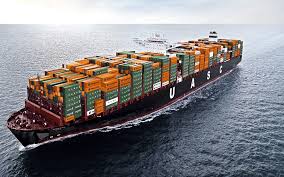
Nigeria has officially begun exporting Premium Motor Spirit (PMS), commonly known as petrol, for the first time in its history, a landmark development driven by the ramp-up of production at the Dangote Petroleum Refinery, Africa’s largest refining facility.
According to the National Bureau of Statistics (NBS), Nigeria earned ₦371.54 billion from petrol exports in Q2 2025, accounting for 1.63% of total exports for the quarter. No such exports were recorded in either Q1 2025 or the same period last year, marking a historic turnaround for a nation long dependent on fuel imports.
The exports are seen as a direct result of the Dangote Refinery’s operational commencement ,a facility designed to transform Nigeria from a net importer to a key supplier of refined petroleum products.
Breakdown of the exports shows that: Only ₦85.83 billion (23.1%) worth of petrol exports were sent to Africa, and all of that remained within West Africa, specifically ECOWAS member states and dominant 76.9% of shipments went to destinations outside Africa, with early buyers including countries in Asia and the Middle East.
In regional terms:
- Petrol made up 2.89% of Nigeria’s exports to Africa,
- 4.36% to West Africa, and
- 4.45% to ECOWAS.
- It ranked as Nigeria’s 9th-largest export globally, 5th in West Africa, and 4th within ECOWAS.
Exports Up, But Imports Still Tower
Despite this breakthrough, Nigeria remains heavily reliant on imported fuel. In Q2 2025:
- The country imported ₦2.38 trillion worth of petrol — nearly 6.4 times the value of exports.
- However, that figure marks a 45.6% decline from the ₦4.36 trillion recorded in Q2 2024.
- On a quarterly basis, petrol imports rose 34.9% from ₦1.76 trillion in Q1 2025.
Cumulatively, Nigeria imported ₦4.14 trillion worth of petrol in the first half of 2025, down nearly 49.4% year-on-year.
Dangote: ‘We’ve Exported One Million Tonnes in 50 Days’
Speaking at the recent Global Commodity Insights Conference on West African refined fuel markets, Alhaji Aliko Dangote, President of Dangote Group, confirmed that the refinery exported 1.35 billion litres of petrol, equivalent to one million tonnes between June and July 2025.
“From June to date, we have exported about one million tonnes of PMS within just 50 days,” Dangote said.
He added that aviation fuel shipments had also begun to destinations such as Europe and Saudi Arabia.
According to S&P Global, gasoline exports from the refinery hit approximately 90,000 barrels per day in June, with recorded shipments to Oman, Singapore, and Malaysia. Early production was constrained by maintenance on the refinery’s catalytic cracking unit, but output is expected to rise steadily.
Responding to criticism that the refinery may be prioritizing exports over local supply, Dangote dismissed monopoly allegations.
“Too many people with the means to contribute prefer to criticise from the sidelines while investing abroad. Our focus is to build energy independence for Nigeria and Africa,” he said.
He also highlighted the refinery’s agreement with the Nigerian government under a naira-for-crude deal, requiring it to supply fixed volumes of refined products to the local market.
Despite Dangote’s contributions, Nigeria and its West African neighbours still import nearly 69% of their PMS needs, according to Farouk Ahmed, Chief Executive of the Nigerian Midstream and Downstream Petroleum Regulatory Authority (NMDPRA).
An estimated 2.05 million metric tonnes of petrol are traded monthly in the region — most of it still sourced from overseas, highlighting the long road ahead in achieving full self-sufficiency.
Nigerian refined products are already gaining international traction. The United States, which imported around 630,000 barrels per day of petroleum in Q2 2025, has emerged as a promising destination, thanks to the high quality of Dangote’s refined fuel.
Other major global importers include the Netherlands, Canada, and India.
Reacting to the milestone, President Bola Tinubu said the refinery’s output is part of a broader strategy to shift the balance of power in global energy markets.
“Africa can no longer remain a price taker for its resources,” Tinubu wrote on his official X (formerly Twitter) handle.
“It is time to establish credible, transparent benchmarks that reflect our realities and protect our economies.”
He added that Nigeria is working with regional partners to build an integrated African energy market that prioritizes domestic access, fair pricing, and cross-border prosperity.
The Bigger Picture: A New Era in Nigerian Energy
The emergence of petrol exports marks a historic structural shift in Nigeria’s trade dynamics. For decades, petrol was the country’s biggest import, never appearing in export data. The operational success of the Dangote Refinery now positions Nigeria as:
- A regional supplier of refined fuel,
- A global exporter to Asia, the Middle East, and North America,
- And a rising energy hub in West Africa.
Analysts believe that as output increases, Nigeria will see:Stronger foreign exchange inflows, reduced reliance on imported fuel and a more stable downstream energy sector.



